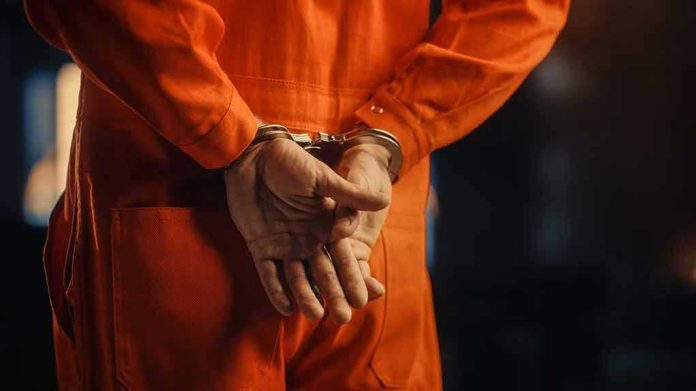
While American citizens scrape by under crushing inflation and skyrocketing crime, our government is quietly housing criminals from around the world at Guantanamo Bay—convicted murderers, sexual predators, and drug traffickers—detained not for fighting our enemies, but for violating U.S. immigration law.
At a Glance
- Guantanamo Bay now detains migrants with serious criminal backgrounds, including convictions for sexual assault, homicide, and child abuse.
- The Trump administration’s policy aims to free up U.S. detention space and deter illegal entry by using the notorious offshore facility.
- Detainees come from 26 countries and are classified as high-risk, with 72 migrants currently held as of July 2025.
- Civil rights groups and foreign governments are raising alarms about human rights, legal process, and lack of transparency.
Guantanamo Bay: No Longer Just for Terrorists
Guantanamo Bay, once the infamous holding pen for enemy combatants and suspected terrorists, has become the new address for the world’s most unwanted illegal migrants. After a historic executive order in early 2025, President Trump directed the expansion of the Migrant Operations Center on the base to a capacity of 30,000. The goal: keep the worst offenders far from American streets, free up overcrowded U.S. detention centers, and send a message to anyone thinking about breaking into the country. This move marks the first large-scale return to Guantanamo for migrant detention since the 1990s, and this time, the guest list is much more dangerous.
According to recent disclosures, Guantanamo’s detainees hail from 26 countries across six continents. The Department of Homeland Security claims these aren’t random border crossers but criminals with “final orders of removal”—convicted, sentenced, and now awaiting deportation. The rap sheet includes sexual assault, child abuse, homicide, robbery, kidnapping, and drug trafficking. Some might wonder why these people were in our communities in the first place, but under previous administrations, open borders and soft enforcement let thousands slip through, and the consequences have been dire.
Public Safety or Political Football?
Officials argue that Guantanamo is necessary to remove high-risk individuals from neighborhoods and avoid more tragedies. DHS Assistant Secretary Tricia McLaughlin describes the detainees as the “worst of the worst”—child predators, rapists, and murderers. The fact that over 650,000 criminal aliens roam free inside the U.S., according to ICE data, only underscores the sense of urgency. While the Biden administration presided over 11 million border encounters and a flood of criminal aliens, the current crackdown has seen border apprehensions plunge to historic lows, with daily encounters down 93% and gotaways down 95%.
For those of us who remember the days when American safety came before political correctness, it’s hard not to see this as a necessary—if overdue—step. When border communities are overrun, and law enforcement is told to stand down, someone has to clean up the mess. The Supreme Court’s recent ruling now allows deportations to third countries, opening the door for broader removals. Yet, it’s not just about numbers; it’s about priorities. If only Washington would show the same urgency for everyday Americans as it does for the world’s lawbreakers.
Legal Battles, International Outrage, and the Price of Security
Not everyone is cheering. Legal advocates and international human rights groups are crying foul, calling the use of Guantanamo for immigration detention a dangerous precedent that sidesteps due process and international law. These critics point to the base’s history of indefinite detention and alleged abuses, arguing that detaining migrants outside U.S. legal jurisdiction makes a mockery of constitutional protections. Foreign governments, blindsided by the arrival of deportees, are raising diplomatic objections, while Congress—predictably—watches from the sidelines, unwilling or unable to rein in executive authority.
Meanwhile, the administration insists that every detainee is a convicted criminal, already ordered removed by an immigration judge. Since February, Guantanamo has processed 663 migrant detainees, though that’s still well short of the 30,000 the administration wants to hold. The policy has also diverted resources from domestic immigration courts and detention centers, raising questions about cost and long-term impact. For American families who have suffered from the crime wave unleashed by open borders, there’s little patience for lectures about international law. The only question that matters: why weren’t these criminals locked up—or shipped out—years ago?
A Stark Choice: Security or Surrender?
The debate over Guantanamo is more than a technical question about detention policy; it’s a litmus test for whether American leaders will defend their own citizens or continue to prioritize the rights of those who broke the law to get here. The left’s outrage over Guantanamo is as predictable as it is misplaced. After years of policies that put criminals before communities, Americans are demanding action, not apologies. The Trump administration’s move is controversial, but for those who have watched the chaos at the border spill into their towns, it’s a welcome change from the empty promises and endless excuses of the past.
With legal challenges mounting and international pressure rising, it remains to be seen whether Guantanamo’s new role will last. But one thing is clear: when the safety and sovereignty of the United States are on the line, it’s time for tough choices—not more “woke” hand-wringing. The American people deserve leaders who put them first, not policies that protect the world’s criminals at their expense.














